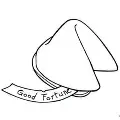In a recent interview, Noelle Drake shared her unique path to becoming a Master Trainer at QBs and offered valuable insights into the world of Safety-Care and crisis prevention. Her story reveals how unexpected opportunities can lead to fulfilling careers in behavioral analysis.
An Accidental Beginning
Like many professionals in the field, Noelle naturally stumbled into behavioral analysis. Her journey began when she was teaching piano to a child with autism. Despite having no formal training in behavioral therapy, she developed a natural rapport with her student. The child’s mother, noticing this connection, recommended Noelle for a position at her son’s therapy center.
“There started my work in ABA,” Noelle explained. “I started as a behavior tech before RBT certification was even a thing.”
From there, her career progressed through various settings—therapeutic recreation, schools, home-based services, and clinics. She eventually earned her Master’s degree, became a BCBA (Board Certified Behavior Analyst), ran her own company, and finally transitioned to her current role as Master Trainer at QBS.
Becoming a QBS Master Trainer
When asked what attracted her to the Master Trainer position, Noelle’s answer was immediate: training has always been her passion.
“One thing I really enjoyed about any BCBA position that I had was training—training staff, training parents,” she shared. “Being able to do that full time was really exciting for me.”
The role allows her to use her behavioral analytic skills in unique ways, distinct from her previous positions. As she’s grown in the role, she’s developed a more thorough understanding of Safety-Care tools and how they work together to address complex situations.
Success Stories and Misconceptions
When asked about success stories she could share from her training experience, Noelle responded that perhaps the most powerful testimony to the effectiveness of Safety-Care came from an organization in one of her trainings that initially implemented the full curriculum, including physical management procedures. After several years, they realized they no longer needed to train their staff in the physical management components because the preventative strategies had been so effective.
“They were able to implement Safety-Care, use a lot of those preventative and minimization strategies to essentially completely decrease and eliminate the need for more restrictive interventions,” Noelle shared.
This success story highlights what Noelle considers a common misconception about crisis prevention: that it’s primarily about restraint training. She emphasizes that physical management is only one small part of a comprehensive approach focused on prevention and minimization.
“Crisis prevention is not restraint training,” she stated firmly. “Most of what we do is not that. We have many other tools that we’re utilizing to help improve quality, improve safety, help people meet their goals.”
Maintaining Balance While Traveling
As a Master Trainer, Noelle spends significant time on the road, training professionals across the country. This lifestyle comes with its own challenges, but she’s found ways to maintain work-life balance.
Her strategies include maintaining a consistent schedule when possible, prioritizing self-care while traveling, regularly connecting with family and friends regardless of time zone, and finding joy in exploring new cities.
For Noelle, the travel aspect is actually a benefit. “I love to travel, so that’s always a big plus for me,” she admitted. She appreciates the opportunity to contribute to “the dissemination of behavior analysis across the country in a really, really big scope.”
Advice for New Trainers
When asked what advice she would give to new Safety-Care trainers, Noelle kept it simple: “Stick with the manual. The manual is your friend.”
She recommends starting with the basic tools in Safety-Care rather than getting pulled into the specifics of individual situations too quickly. “Start there and then we can kind of help make that more specific to the individuals that you’re working with as time goes on.”
Looking to the Future
Noelle is excited about the direction of the behavioral analysis field, particularly its movement toward “more flexibility and inclusivity across disciplines.” She hopes to see BCBAs continue to improve their reputation for collaboration, moving away from rigidity toward working alongside other professionals and valuing their expertise.
Through her work as a Master Trainer, Noelle continues to contribute to this evolution, helping professionals across disciplines implement effective, compassionate approaches to crisis prevention and management.
 By using our site, you consent to our use of cookies to enhance functionality and analyze site performance.
By using our site, you consent to our use of cookies to enhance functionality and analyze site performance.